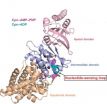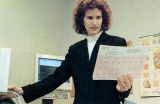The emotional oracle effect
Study reveals that individuals who trust their feelings are consistently able to predict future events more accurately than people who do not trust their feelings -- a finding called the emotional oracle effect
2012-02-27
(Press-News.org) NEW YORK – February 24, 2012 – A forthcoming article in the Journal of Consumer Research by Professor Michel Tuan Pham, Kravis Professor of Business, Marketing, Columbia Business School; Leonard Lee, Associate Professor, Marketing, Columbia Business School; and Andrew Stephen, PhD '09, currently Assistant Professor of Business Administration, Joseph M. Katz Graduate School of Business, University of Pittsburgh, finds that a higher trust in feelings may result in more accurate predictions about a variety of future events. The research will also be featured in Columbia Business School's Ideas at Work in late February 2012. In the research, the researchers conducted a series of eight studies in which their participants were asked to predict various future outcomes, including the 2008 U.S. Democratic presidential nominee, the box-office success of different movies, the winner of American Idol, movements of the Dow Jones Index, the winner of a college football championship game, and even the weather. Despite the range of events and prediction horizons (in terms of when the future outcome would be determined), the results across all studies consistently revealed that people with higher trust in their feelings were more likely to correctly predict the final outcome than those with lower trust in their feelings. The researchers call this phenomenon the emotional oracle effect.
Across studies, the researchers used two different methods to manipulate or measure how much individuals relied on their feelings to make their predictions. In some studies, the researchers used an increasingly standard trust-in-feelings manipulation originally developed by Tamar Avnet, PhD '04 and Professor Michel Pham based on earlier findings by Norbert Schwarz of the University of Michigan and his colleagues. In other studies, the researchers simply measured how much participants typically relied on their feelings in general when making predictions. Regardless of the method used, participants who trusted their feelings in general or were induced to trust their feelings experimentally were more accurate in their predictions compared to participants with lower trust in their in their feelings and participants in a control group.
In one study involving the Clinton-Obama contest in 2008, high-trust-in-feelings respondents predicted correctly for Obama about 72 percent of the time compared with low-trust respondents, who predicted for Obama about 64 percent of the time – a striking result given that major polls reflected a very tight race between Clinton and Obama at that time. For the winner of American Idol, the difference was 41 percent for high-trust-in-feelings respondents compared to 24 percent for low-trust respondents. In another study participants were even asked to predict future levels of the Dow Jones stock market index. Those who trusted their feelings were 25 percent more accurate than those who trusted their feelings less.
The researchers explain their findings through a "privileged window" hypothesis. Professor Michel Pham elaborates on the hypothesis. "When we rely on our feelings, what feels 'right' or 'wrong' summarizes all the knowledge and information that we have acquired consciously and unconsciously about the world around us. It is this cumulative knowledge, which our feelings summarize for us, that allows us make better predictions. In a sense, our feelings give us access to a privileged window of knowledge and information – a window that a more analytical form of reasoning blocks us from."
In accordance with the privileged window hypothesis, the researchers caution that some amount of relevant knowledge appears to be required to more accurately forecast the future. For example, in one study participants were asked to predict the weather. While participants who trusted their feelings were again better able to predict the weather, they were only able to do so for the weather in their own zip codes, not for the weather in Beijing or Melbourne. Professor Leonard Lee explains this is because "…they don't possess a knowledge base that would help them to make those predictions." As another example, only participants who had some background knowledge about the current football season benefited from trust in feelings in predicting the winner of the national college football BCS game.
Thus, if we have a proper knowledge base, the future need not be totally indecipherable if we simply learn to trust our feelings.
###
About Columbia Business School
Led by Dean Glenn Hubbard, the Russell L. Carson Professor of Finance and Economics, Columbia Business School is at the forefront of management education for a rapidly changing world. The school's cutting-edge curriculum bridges academic theory and practice, equipping students with an entrepreneurial mindset to recognize and capture opportunity in a competitive business environment. Beyond academic rigor and teaching excellence, the school offers programs that are designed to give students practical experience making decisions in real-world environments. The school offers MBA and Executive MBA (EMBA) degrees, as well as non-degree Executive Education programs. For more information, visit www.gsb.columbia.edu.
END
ELSE PRESS RELEASES FROM THIS DATE:
2012-02-27
The gold standard for nanotechnology is nature's own proteins. These biomolecular nanomachines – macromolecules forged from peptide chains of amino acids - are able to fold themselves into a dazzling multitude of shapes and forms that enable them to carry out an equally dazzling multitude of functions fundamental to life. As important as protein folding is to virtually all biological systems, the mechanisms behind this process have remained a mystery. The fog, however, is being lifted.
A team of researchers with the U.S. Department of Energy (DOE)'s Lawrence Berkeley ...
2012-02-27
Patients with heart disease who took cholesterol-lowering statins were significantly less likely to develop depression than those who did not, in a study by Mary Whooley, MD, a physician at the San Francisco VA Medical Center and a professor of medicine at the University of California, San Francisco.
The study was published electronically in the Journal of Clinical Psychiatry (February 21, 2012).
Whooley and her research team evaluated 965 heart disease patients for depression, and found that the patients who were on statins were significantly less likely to be clinically ...
2012-02-27
NEW YORK – February 24, 2012 – A recent study in the Review of Financial Studies proposes a new, valuation-based measure of equity market segmentation. Equity market segmentation occurs when stocks of similar risk in different countries are priced differently. The study, by Columbia Business School Professor Geert Bekaert, Chazen Senior Scholar at The Jerome A. Chazen Institute of International Business at Columbia Business School and the Leon G. Cooperman Professor of Finance and Economics, uncovers the factors that cause variation in market segmentation, both through ...
2012-02-27
Prehistoric Eurasian nomads are commonly perceived as horse riding bandits who utilized their mobility and military skill to antagonize ancient civilizations such as the Chinese, Persians, and Greeks. Although some historical accounts may support this view, a new article by Dr. Michael Frachetti (Washington University, St. Louis) illustrates a considerably different image of prehistoric pastoralist societies and their impact on world civilizations more than 5000 years ago.
In the article, recently published in the February issue of Current Anthropology, Frachetti argues ...
2012-02-27
Boulder, Colorado, USA - Linear dunes, widespread on Earth and Saturn's moon, Titan, are generally considered to have been formed by deposits of windblown sand. It has been speculated for some time that some linear dunes may have formed by "wind-rift" erosion, but this model has commonly been rejected due to lack of sufficient evidence. Now, new research supported by China's NSF and published this week in GSA BULLETIN indicates that erosional origin models should not be ruled out.
The linear dunes in China's Qaidam Basin have been proposed to have formed as self-extending ...
2012-02-27
Boulder, CO, USA - New GSA BULLETIN science published online 24 Feb. includes work on the Chugach Metamorphic Complex of southern Alaska; news and data from the first non-Russian science team to make a helicopter over-flight of Shiveluch volcano in Kamchatka, Russia, after its large 2005 eruption; and a study by a team from the Lamont-Doherty Earth Observatory that proposes a new calibration model for the Eocene segment of the Geomagnetic Polarity Time Scale (GPTS).
Large-scale, short-lived metamorphism, deformation, and magmatism in the Chugach metamorphic complex, ...
2012-02-27
A UCLA-led group of researchers tracing disparities in life expectancy between blacks and whites in the U.S. has found that white males live about seven years longer on average than African American men and that white women live more than five years longer than their black counterparts.
But when comparing life expectancy on a state-by-state basis, the researchers made a surprising discovery: In those states in which the disparities were smallest, the differences often were not the result of African Americans living longer but of whites dying younger than the national ...
2012-02-27
Children with autism spectrum disorders who also have serious behavioral problems responded better to medication combined with training for their parents than to treatment with medication alone, Yale researchers and their colleagues report in the February issue of Journal of the American Academy of Child & Adolescent Psychiatry.
"Serious behavioral problems interfere with everyday living for children and their families," said senior author on the study Lawrence Scahill, professor at Yale University School of Nursing and the Child Study Center. "Decreasing these serious ...
2012-02-27
Here's a riddle: What's the difference between a tick and a lion? The answer used to be that a tick is a parasite and the lion is a predator. But now those definitions don't seem as secure as they once did.
A tick also hunts its prey, following vapor trails of carbon dioxide, and consumes host tissues (blood is considered a tissue), so at least in terms of its interactions with other creatures, it is like a lion — a very small, eight-legged lion.
Ecologists are increasingly finding it useful to think of parasites, such as ticks, as micro-predators and have been mining ...
2012-02-27
Business bankruptcy filings, such as those associated with Washington Mutual and Eastman Kodak, tend to make front page news. Every day, though, and with far less fanfare, consumers across the country are seeking debt relief through personal bankruptcy. Los Angeles bankruptcy lawyer Hamid Soleimanian is now offering free consultations for all bankruptcy cases.
As many as 1.36 million Americans filed for bankruptcy during 2011, according to the U.S. Bankruptcy Court. In fact, business bankruptcies have fallen by as much as 20 percent, while total filings are down just ...
LAST 30 PRESS RELEASES:
[Press-News.org] The emotional oracle effect
Study reveals that individuals who trust their feelings are consistently able to predict future events more accurately than people who do not trust their feelings -- a finding called the emotional oracle effect



